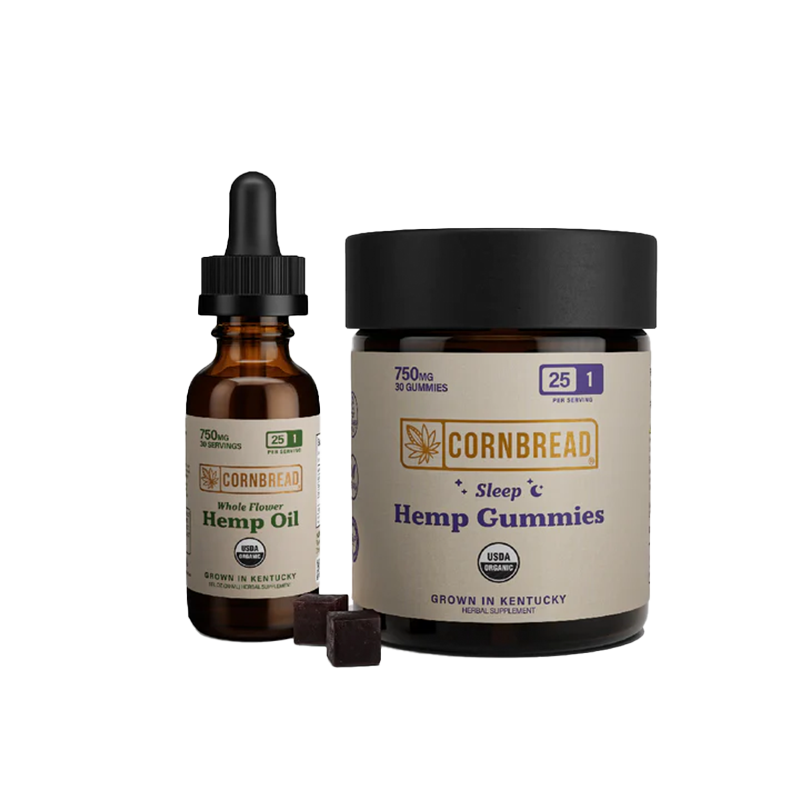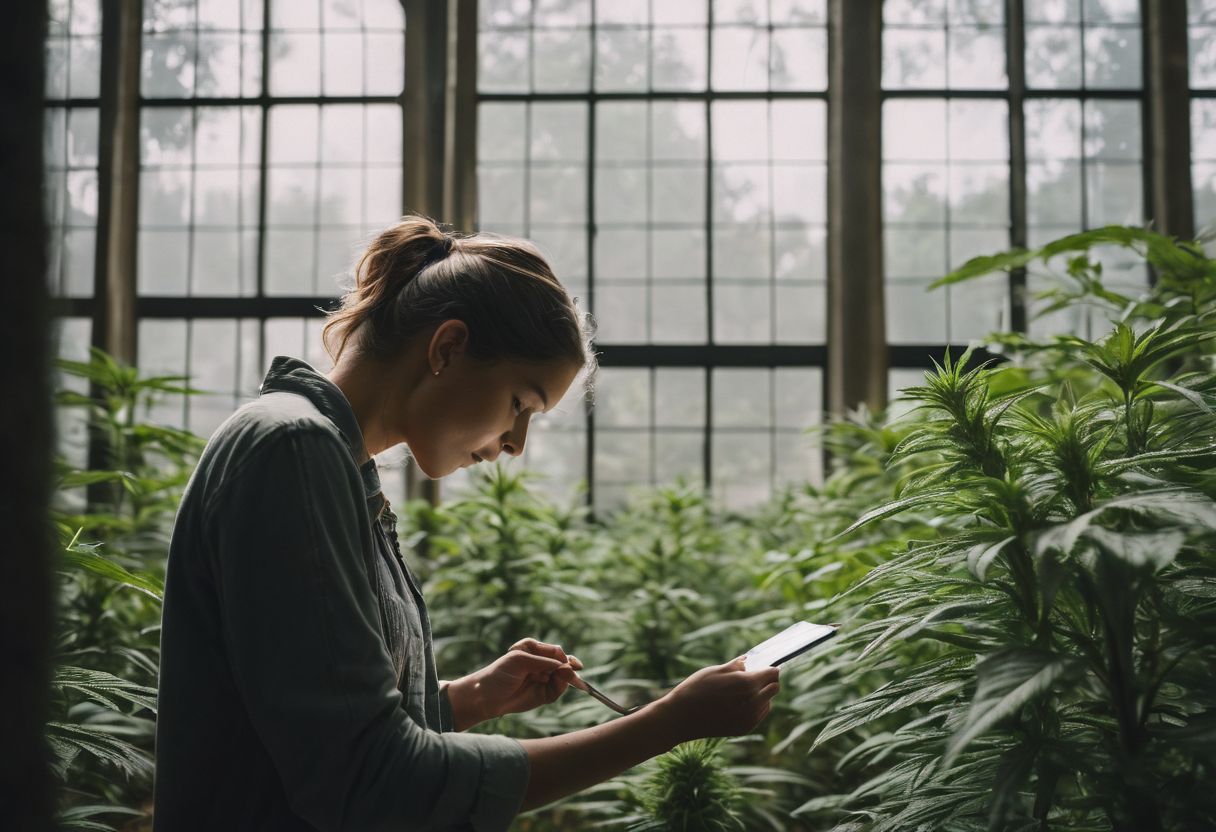You’ve likely heard about CBD oil’s benefits, but you might wonder if it also contains THC. Interestingly, both CBD and THC come from the same plant yet have very different effects on your body.
This article dives into their relationship and clarifies whether your bottle of CBD oil has any THC in it. Keep reading to become well-informed and make confident choices about your wellness journey!
Key Takeaways
- CBD and THC are from the same plant but have different effects. CBD won’t make you feel high, while THC will.
- Most CBD oils come from hemp plants that must have less than 0.3% THC by law. Still, check labels because some might have more.
- To avoid a positive drug test from using CBD, choose products with “CBD isolate” or those that show no THC on third-party lab tests.
- In the US, it’s okay to use hemp – based CBD with up to 0.3% THC. But each state has its own rules about these substances.
- Using too much THC can cause problems like feeling confused or having trouble thinking clearly; regular use could increase psychosis risk in some people.
Understanding CBD and THC

CBD and THC are both compounds found in the cannabis plant, but they have different effects on the body. CBD is non-intoxicating and may offer potential health benefits, while THC is psychoactive and responsible for the “high” associated with marijuana use.
Understanding the differences between these two compounds is important when considering their use in CBD oil products.
Cornbread
<p>Get a better night’s sleep and wake up refreshed with our Hemp Sleep Bundle, complete with our best sellers to support your slumber.</p>
Learn More
The Difference Between CBD and THC
CBD and THC both come from the cannabis plant. They have the same number of carbon and hydrogen atoms, but their effects on your body are different. THC is what makes you feel high.
CBD does not do this.
People use CBD for health without getting high. It works with parts of your body called receptors but won’t make you feel strange or out of control like THC can. This means you can use products with CBD at work or school without worrying about feeling funny.
The Origin of CBD and THC
CBD and THC both come from the cannabis sativa plant. This plant can grow in different ways which makes either more CBD or more THC. People have used parts of this plant, like leaves and flowers, for a very long time to feel better or change their mood.
Scientists found out that these two parts, called cannabinoids, are special chemicals that work with our body’s own system. They fit into places in our bodies called receptors. Even though they look alike with 21 carbon atoms and 30 hydrogen atoms each, they do different things inside us.
That’s why THC can make you feel funny but CBD doesn’t. Next up: How do these cousins work together? Let’s take a closer look at their relationship.
The Relationship Between CBD and THC

CBD and THC are both compounds found in the cannabis plant, but they have different effects on the body. While CBD is non-psychoactive and does not produce a “high,” THC is the psychoactive component responsible for the intoxicating effects of marijuana.
Despite their differences, CBD and THC can work together synergistically to provide therapeutic benefits when used in combination. Understanding this relationship is essential for consumers looking to benefit from CBD oil while minimizing any potential side effects from THC.
Does CBD Oil Contain THC?
CBD oil might have a little bit of THC in it. This is because they both come from the same plant. Even though they are alike, CBD doesn’t make you feel high like THC does. Hemp plants are used to make most CBD oils, and these plants must have no more than 0.3% THC by law.
Some CBD oils do contain more THC, which can surprise people who use them. Always look at what’s inside your CBD product before you buy it or use it. Labels should tell you how much THC is there, but sometimes tests find more THC than the label says.
If you want to be sure there’s no THC in your CBD oil, choose one that says “CBD isolate” on the label – that means it’s just pure CBD with nothing else added.
How CBD and THC Affect the Body
CBD and THC affect the body differently. When you ingest THC, it attaches to cannabinoid receptors in your brain and nervous system. This binding creates a “high” feeling and can also affect memory, coordination, and perception of time.
On the other hand, CBD does not bind directly with these receptors but influences them to reduce pain and inflammation.
Moreover, CBD has been found to have potential therapeutic effects without causing psychoactive effects or addiction. It may help alleviate anxiety, improve sleep quality, reduce seizures in certain types of epilepsy like Dravet syndrome, and provide relief from chronic pain.
The Legality of CBD and THC
In the United States, CBD derived from hemp plants containing less than 0.3% THC is legal at the federal level. However, THC remains federally illegal except for FDA-approved medications and certain state-legalized marijuana products.
It’s essential to check your state laws as they may vary regarding the legality of both CBD and THC products.
CBD is not considered a controlled substance, but it’s crucial to ensure that the CBD product you choose complies with regulations and contains no more than 0.3% THC. Understanding the legal status of CBD and THC in your area will help you make informed decisions when purchasing these products online or in stores.
Risks and Side Effects of CBD and THC
When considering CBD and THC, it’s crucial to be aware of potential risks and side effects. While CBD is generally well-tolerated, some individuals may experience adverse reactions such as diarrhea, fatigue, and changes in weight or appetite.
Additionally, CBD can interact with certain medications like blood thinners, potentially impacting their effectiveness. On the other hand, THC is known for its psychoactive properties which can lead to short-term cognitive impairment, increased heart rate, and coordination issues.
Regular use of THC may also heighten the risk of psychosis in susceptible individuals.
It’s important to note that both CBD and THC products are not regulated by the FDA in the same way as prescription medications. As a result, inconsistencies in product quality and labeling exist within the market.
Third-party testing of these products is essential to ensure accurate dosages and prevent exposure to harmful substances such as synthetic cannabinoids or excessive levels of THC. This highlights the significance of obtaining CBD or THC from reputable sources while being mindful of potential risks associated with their usage.
Potential Health and Wellness Benefits of CBD Oil
CBD oil has been reported to have potential health and wellness benefits. Some studies suggest that it may help with pain relief, reduce anxiety and depression, alleviate cancer-related symptoms, and even have neuroprotective properties.
Additionally, CBD oil is being researched for its potential role in managing acne due to its anti-inflammatory qualities. It’s important to note that while some preliminary findings are promising, more research is needed to fully understand the extent of these potential benefits.
The therapeutic effects of CBD are believed to be linked to its interaction with the body’s endocannabinoid system, which plays a crucial role in regulating various physiological processes such as mood, sleep, appetite, and immune response.
It is essential for consumers interested in utilizing CBD oil for health purposes to consult with healthcare professionals or clinicians before integrating it into their wellness routine.
It’s also vital to ensure the quality and legality of the product by purchasing from reputable sources offering transparent information about THC levels and third-party lab testing results.
How to Avoid a Positive CBD Drug Test
To avoid a positive CBD drug test, consider these tips:
- Look for CBD products with third – party lab testing to ensure they contain no THC or only trace amounts.
- Be cautious of using full – spectrum CBD products that may contain small amounts of THC.
- Understand the THC levels in the CBD product you are using and ensure it complies with legal limits.
- Consult your healthcare provider before using CBD if you are concerned about drug tests or if you’re subject to regular drug screenings.
- Be aware that some CBD products labeled as “THC – free” may still contain trace amounts of THC that could result in a positive drug test.
- Stay informed about local laws and regulations regarding CBD and THC content to avoid unintentional exposure to THC.
- Consider using CBD isolates, which contain pure CBD without any THC, as a safer option for individuals who are subject to drug tests.
Conclusion
In summary, CBD and THC are related but have different effects on the body. While both compounds come from cannabis plants, CBD does not make you high like THC does. It’s important to be aware of the varying levels of THC in CBD products and how they can affect drug tests.
Understanding this relationship can help consumers make informed choices when shopping for CBD oil online.
FAQs
1. What is CBD oil and does it have THC in it?
CBD oil, made from cannabis plants, doesn’t always have THC in it. Some types may contain very small amounts of THC.
2. Is CBD the same as marijuana?
No, CBD is a substance found in cannabis that’s used for medical reasons, unlike THC, which can make you feel high.
3. Can you use CBD oil for health problems?
Yes, some people use CBD oil to help with conditions like seizure disorders and pain management because of FDA-approved medicines like Epidiolex.
4. Is it legal to use products with CBD and THC?
In places where medical cannabis is allowed by law, you can use products with both substances for certain health issues.
5. Does the FDA say anything about using CBD or THC?
The Food and Drug Administration (FDA) has approved some forms of cannabidiol (CBD) like Epidiolex for medical uses but controls how much tetrahydrocannabinol (THC) these products can have.
6. Could taking both CBD and other drugs be a problem?
Sometimes yes; if you take cannabidiol (CBD) with other drugs like clobazam for seizures or Parkinson’s disease, there could be drug interactions.






